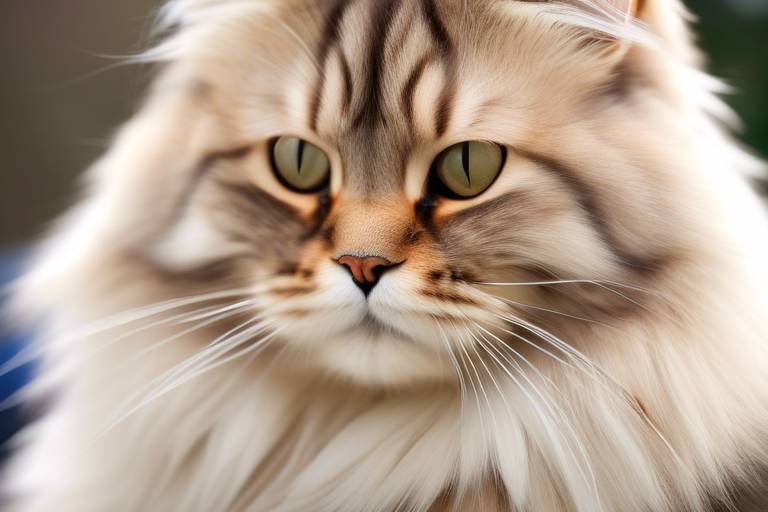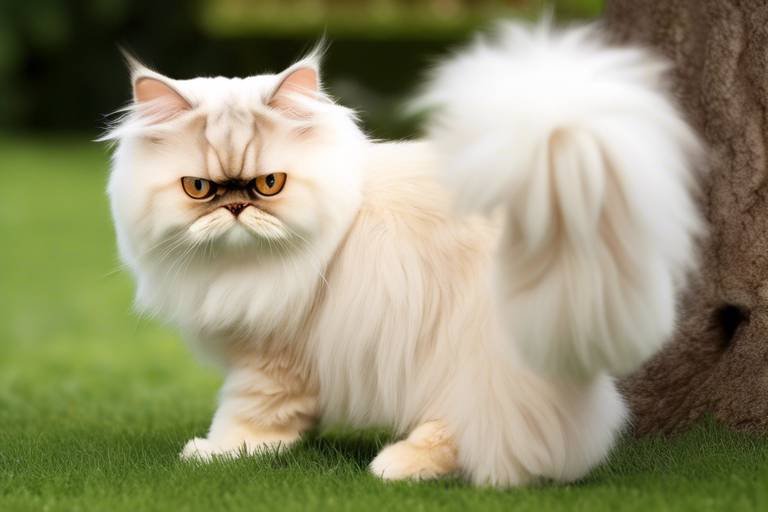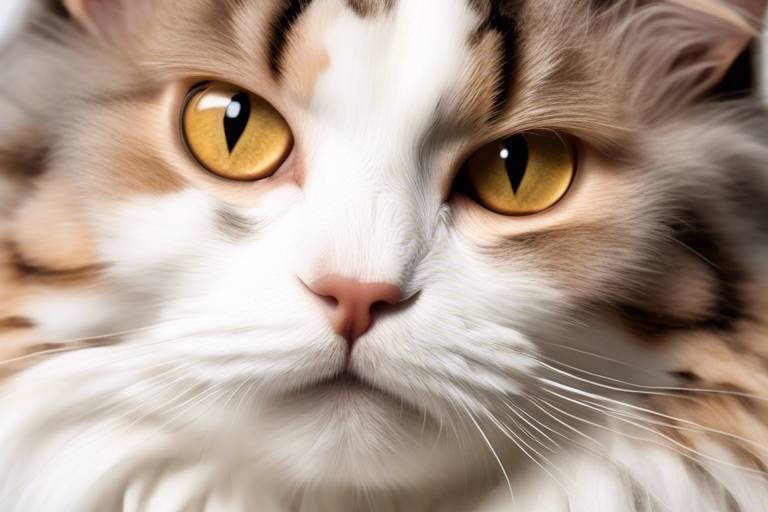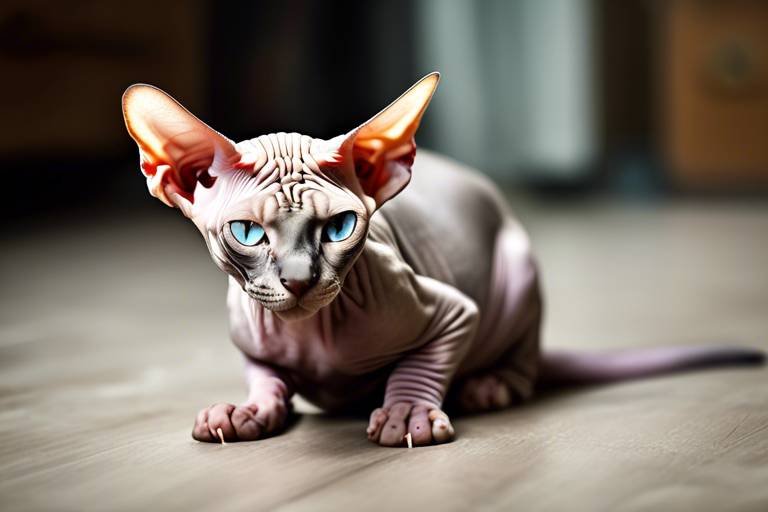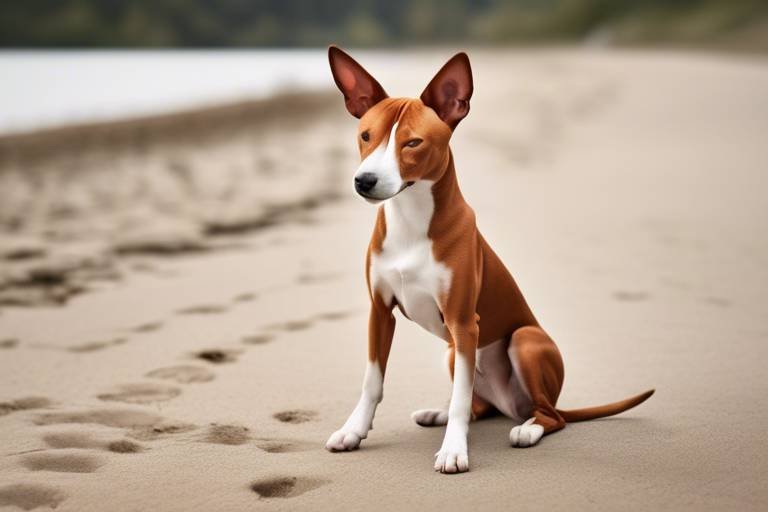The Gentle Nature of the Siberian Cat
Siberian cats are often described as the gentle giants of the feline world. With their stunning appearance and affectionate demeanor, these cats have captured the hearts of many. If you're considering adding a furry friend to your family, the Siberian cat might just be the perfect fit. Their gentle nature makes them particularly suitable for families, as they are known to be friendly, loving, and surprisingly adaptable. In this article, we will delve into the unique characteristics, temperament, and care needs of these magnificent creatures, showcasing why they are such wonderful companions.
Originating from the cold, vast landscapes of Siberia, these cats have a rich history that dates back centuries. Their ability to thrive in harsh climates has shaped their robust physical characteristics and resilient temperament. As we explore their origins, it becomes clear that Siberian cats are not just pets; they are a testament to survival and adaptability. This breed has evolved through the ages, making them not only beautiful but also incredibly hardy, which adds to their charm as family members.
One of the most striking features of Siberian cats is their appearance. They possess a luxurious coat that is thick and water-resistant, perfect for keeping them warm in the frigid temperatures of their homeland. Their large size, coupled with their expressive eyes, gives them an almost regal presence. But it's not just their looks that make them special; it's their gentle temperament that truly sets them apart. Siberians are known to be affectionate and loyal, often forming strong bonds with their human companions.
When it comes to temperament, Siberian cats are renowned for their sweet and loving nature. They are not just solitary creatures; rather, they thrive on interaction and companionship. This breed is known for its playful spirit and curiosity, making them delightful to be around. Whether they are chasing after a feather toy or curling up on your lap, their affectionate behavior is sure to warm your heart. It's this gentle, loving nature that makes them ideal for families, children, and even other pets.
In addition to their affectionate demeanor, Siberian cats possess excellent socialization skills. They are naturally sociable and tend to get along well with both humans and other animals. This adaptability is one of the reasons why they make such great family pets. If you have other pets, introducing a Siberian cat into your household can be a smooth process, as they are generally accepting and friendly. Their playful nature also encourages healthy interactions with other pets, fostering a harmonious environment at home.
Speaking of playfulness, these cats have an innate curiosity that drives them to explore their surroundings. They love engaging in interactive play, whether it’s chasing a ball, climbing to new heights, or pouncing on unsuspecting toys. As a cat owner, it's essential to provide them with various activities that stimulate their playful instincts. Not only does this keep them physically active, but it also enhances their mental well-being. When you see your Siberian cat in action, you can't help but be captivated by their energy and enthusiasm for life.
Another remarkable aspect of Siberian cats is their adaptability. Whether you live in a bustling household or a quiet apartment, these cats can adjust to different living situations with ease. Their calm demeanor allows them to feel comfortable in various environments, making them suitable companions for all types of families. This adaptability is a significant advantage for potential cat owners, as it means that Siberians can fit seamlessly into your lifestyle, regardless of your living situation.
Understanding how Siberian cats communicate is essential for building a strong bond with them. They have unique vocalizations and body language that convey their feelings and needs. By paying attention to their sounds and movements, you can better understand what your feline friend is trying to express. This understanding fosters a deeper connection between you and your Siberian cat, enhancing the overall companionship experience.
In summary, the Siberian cat is a breed that embodies gentleness, affection, and adaptability. Their striking appearance and playful personality make them a joy to have around, while their social nature ensures they fit well into family life. If you’re looking for a loving companion who thrives on interaction and play, the Siberian cat might just be the perfect addition to your home.
- What is the average lifespan of a Siberian cat? Siberian cats typically live between 12 to 15 years, with proper care and a healthy lifestyle.
- Do Siberian cats shed a lot? Yes, they have a thick coat that sheds, especially during seasonal changes. Regular grooming helps manage shedding.
- Are Siberian cats hypoallergenic? While no cat is completely hypoallergenic, Siberians produce lower levels of Fel d 1, the allergenic protein, making them a better choice for allergy sufferers.
- How much exercise do Siberian cats need? Siberian cats are playful and active, requiring daily playtime and mental stimulation to keep them happy and healthy.
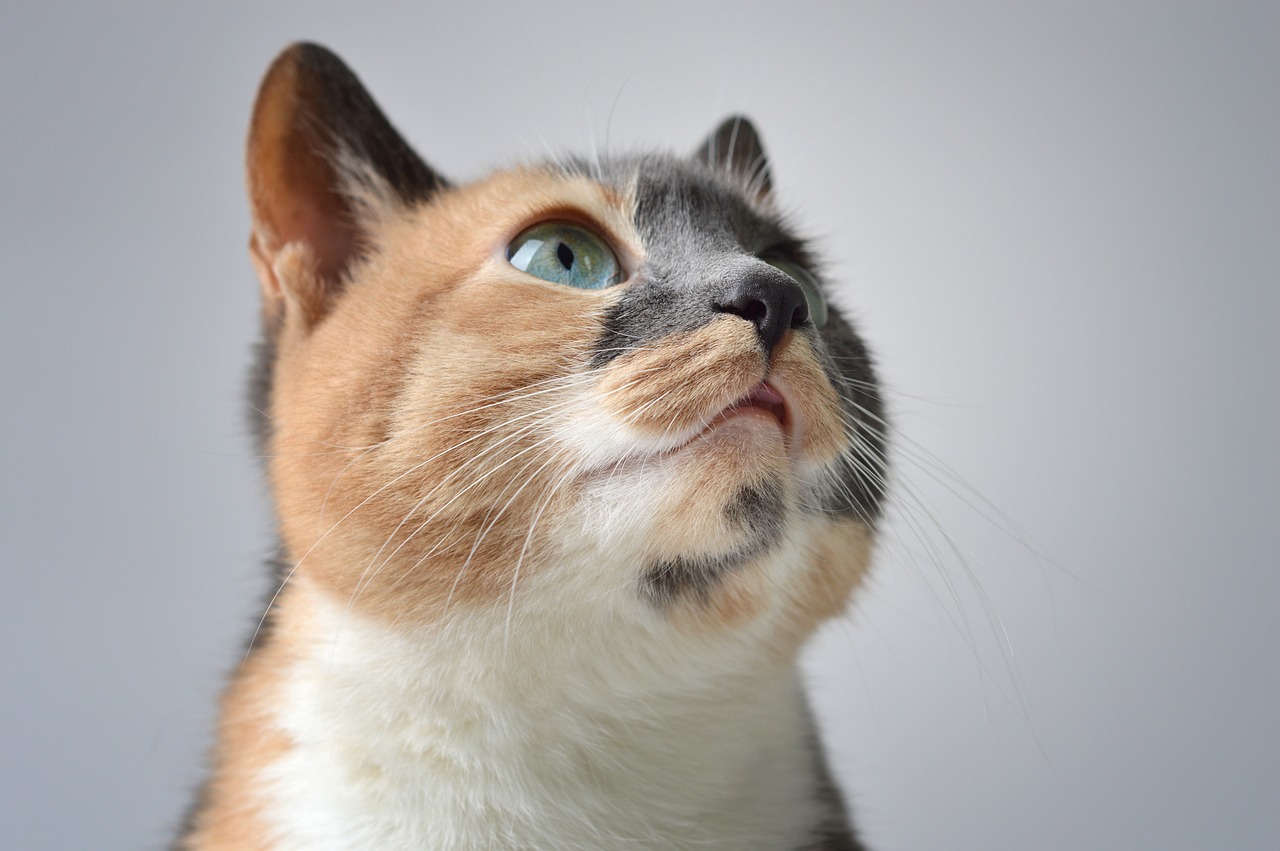
Origin and History
The Siberian cat is a breed steeped in mystery and charm, with roots that trace back to ancient Russia. These magnificent felines are believed to have descended from a mix of domestic cats and wild felines, such as the European wildcat. Their history is rich and fascinating, as they adapted to the harsh climates and environments of Siberia, showcasing their resilience and strength.
Historically, Siberian cats were revered not just for their beauty but also for their hunting prowess. They were often seen as protectors of homes, keeping rodent populations in check. This practical role in households contributed to their popularity among Russian families. Interestingly, the breed was recognized officially in the late 1980s and early 1990s, marking a turning point that allowed them to gain international recognition.
As the world began to embrace these gentle giants, the Siberian cat became a symbol of Russian culture. Their unique blend of grace and strength caught the attention of cat enthusiasts worldwide. Today, they are not just a breed but a cherished companion, known for their affectionate nature and loyalty.
To better understand the journey of the Siberian cat, it's essential to consider the following key points:
- Adaptation: Siberian cats have evolved to thrive in extreme cold, developing a thick double coat that provides insulation against harsh winters.
- Historical Significance: They were often featured in Russian folklore and art, symbolizing good fortune and companionship.
- Modern Recognition: The breed gained official recognition in the 1980s, leading to their introduction in cat shows and competitions globally.
In summary, the of Siberian cats reflect a journey of survival, adaptation, and affection. As they transitioned from working cats to beloved family pets, they have maintained their gentle nature and captivating presence, making them a perfect addition to any household.
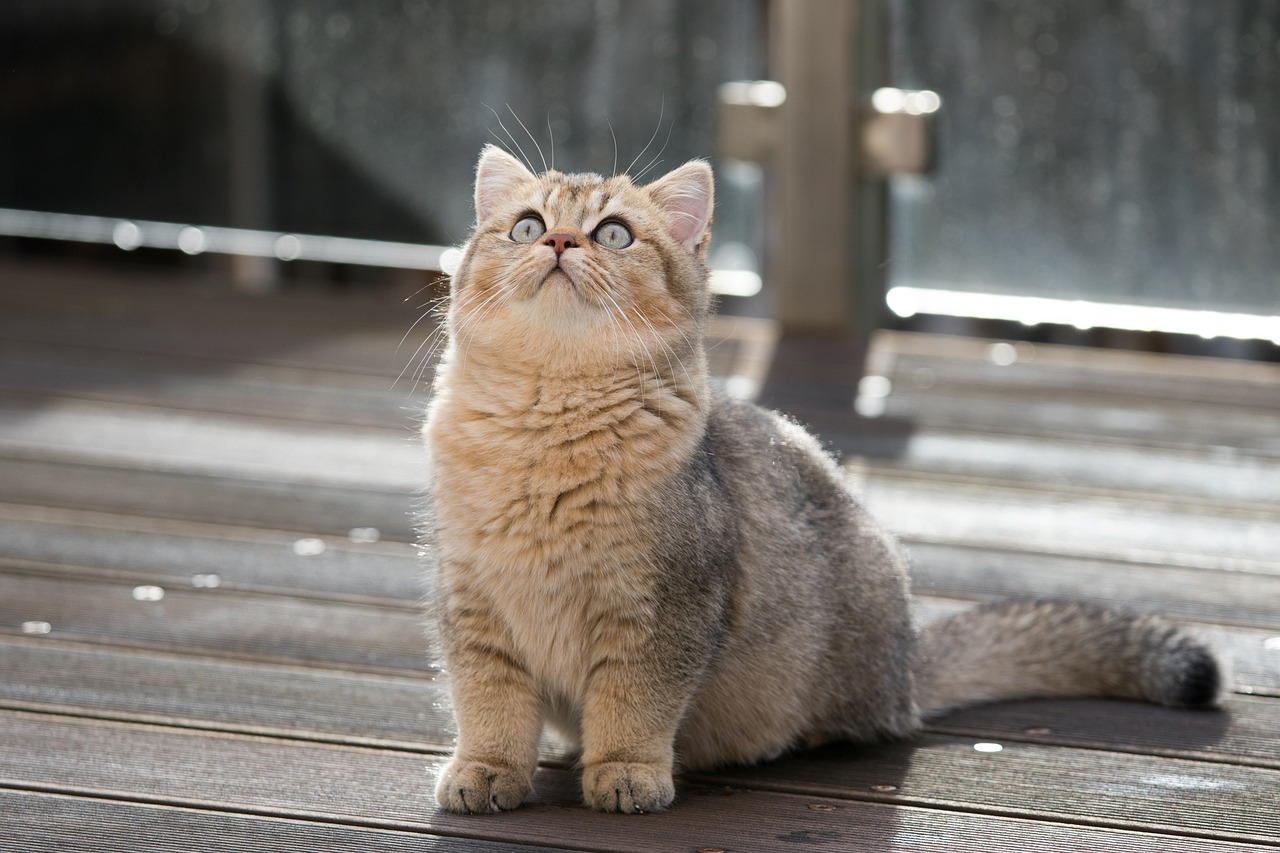
Physical Characteristics
The Siberian cat is a true marvel of nature, boasting a striking appearance that captivates cat lovers around the world. One of the most notable features of this breed is its thick, luxurious fur, which is not only beautiful but also serves a practical purpose. This double coat, made up of a dense undercoat and a longer outer layer, provides insulation against the harsh climates of Siberia. As a result, Siberian cats are well-equipped to handle cold weather, making them quite unique among domestic cats.
In terms of size, Siberian cats are considered medium to large, with males typically weighing between 15 to 20 pounds and females ranging from 10 to 15 pounds. Their sturdy build is complemented by a strong bone structure and well-developed muscles, giving them a powerful presence. This robust physique allows them to be agile and playful, which is a hallmark of their personality. Their bodies are not just for show; these cats are natural athletes, capable of impressive leaps and bounds when engaged in play.
Another striking feature of the Siberian cat is its expressive eyes. They come in a variety of colors, including green, gold, and copper, and are often described as being large and round, giving them an inquisitive and gentle expression. The combination of their captivating eyes and soft, rounded faces creates an endearing look that is hard to resist. Additionally, their ears are medium-sized, with tufts of fur at the tips, which not only enhances their appearance but also helps to keep them warm.
When it comes to color patterns, Siberians are incredibly diverse. They can be found in a variety of colors and patterns, including:
- Solid - A single color throughout the coat.
- Tabby - Striped or spotted patterns that add character.
- Bi-color - A combination of two colors, often with white.
- Colorpoint - Darker colors on the ears, face, paws, and tail.
This variety not only makes each Siberian cat unique but also adds to their charm as family pets. Their physical characteristics are not just about aesthetics; they play a vital role in their overall health and behavior. For example, the thick fur requires regular grooming to prevent matting, and their muscular build ensures they need plenty of exercise to stay healthy and happy.
In summary, the physical characteristics of the Siberian cat are a perfect blend of beauty and functionality. Their thick fur, robust body, and expressive features make them a beloved breed among cat enthusiasts. Whether you're drawn in by their stunning appearance or their playful nature, one thing is for sure: Siberian cats are a delightful addition to any home.
- What is the average lifespan of a Siberian cat? Siberian cats typically live between 12 to 15 years, with proper care and a healthy lifestyle.
- Do Siberian cats shed a lot? Yes, they do shed, especially during seasonal changes, but regular grooming can help manage the shedding.
- Are Siberian cats good with children? Absolutely! Their gentle and playful nature makes them excellent companions for children.
- How much exercise do Siberian cats need? Siberian cats are active and playful, requiring daily playtime and mental stimulation to stay healthy.
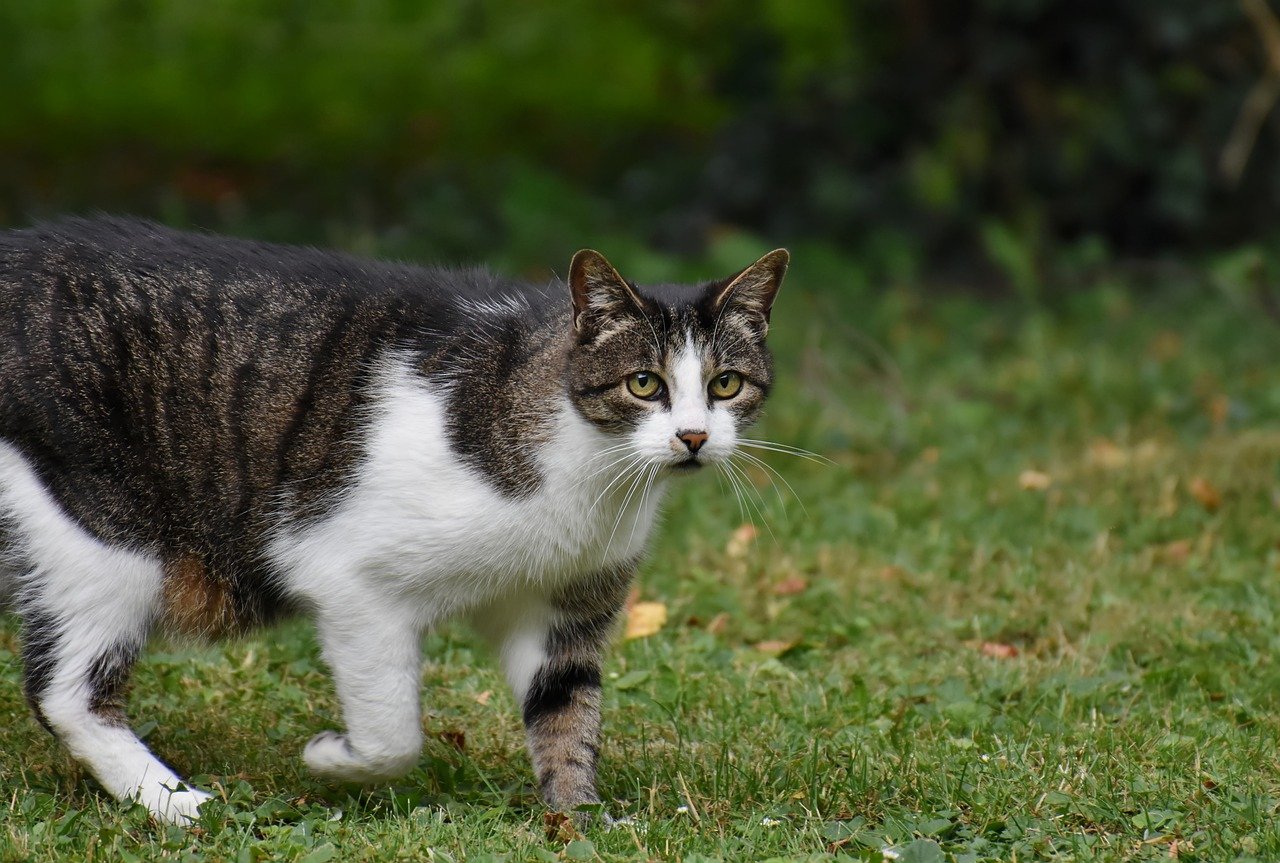
Temperament and Behavior
The Siberian cat is not just a pretty face; their temperament and behavior are equally captivating. Known for their gentle and affectionate nature, these cats often become beloved members of the family. Unlike some breeds that can be aloof or independent, Siberians thrive on human interaction and are known to form strong bonds with their owners. Their playful demeanor is infectious, making them a joy to have around.
One of the most remarkable traits of the Siberian cat is their social nature. They are naturally inclined to get along with children, other pets, and even strangers. This breed is often described as dog-like in their loyalty and friendliness. Imagine a cat that greets you at the door, follows you around the house, and seeks your attention like a loyal companion. Siberians are known to be curious explorers, often investigating every nook and cranny of their environment. This inquisitive nature makes them entertaining to watch, as they can turn mundane household items into their personal playground.
Socialization is key to nurturing the Siberian cat's friendly behavior. From a young age, exposing them to various environments, people, and animals helps them develop positive social skills. It’s important to encourage interactions with both humans and other pets, as this can enhance their adaptability and confidence. A well-socialized Siberian cat is typically more relaxed and comfortable in different situations, which is a blessing for families that enjoy hosting gatherings or have multiple pets.
When it comes to play, Siberians are champions of fun. They are not just passive observers; they actively engage in playtime with their humans. Whether it’s chasing after a feather toy, pouncing on a laser dot, or climbing to new heights, their playful instincts are boundless. Regular interactive play helps them burn off energy and keeps their minds sharp. It's essential to provide a variety of toys and activities to keep them entertained. Think of it as providing a mini amusement park right in your living room!
Another fascinating aspect of Siberian cats is their incredible adaptability. Whether you live in a bustling household with kids and pets or a quiet apartment, these cats find a way to make themselves at home. They can adjust to a variety of living situations, which makes them ideal companions for many different lifestyles. Their calm demeanor allows them to thrive in both busy and tranquil environments, proving that they are truly versatile pets.
Understanding a Siberian cat also means paying attention to their unique communication styles. They are not shy about expressing their needs and feelings. From soft chirps to loud meows, each sound has its own meaning. Their body language is equally expressive; a flick of the tail or a slow blink can convey a range of emotions from affection to curiosity. By learning to interpret these signals, owners can foster a deeper connection with their feline friends.
- Are Siberian cats good with children? Yes, Siberian cats are known for their gentle temperament and often form strong bonds with children.
- Do Siberian cats require a lot of grooming? While they have thick fur, regular grooming sessions can help manage their coat and prevent matting.
- How do Siberian cats behave with other pets? They are generally sociable and can get along well with other pets if properly socialized.
- What is the average lifespan of a Siberian cat? Siberian cats typically live between 12 to 15 years, depending on their health and care.
Socialization Skills
Siberian cats are not just pets; they are family members who thrive on social interactions. Their gentle nature makes them exceptionally good with children and other pets, creating a harmonious living environment. Imagine a furry friend who not only loves to cuddle but also plays well with your kids or even your dog! This breed has a natural knack for forming bonds, which is why they are often referred to as the gentle giants of the feline world. Their sociable demeanor is rooted in their history as working cats in Russia, where they were valued companions on farms and in households.
One of the most remarkable aspects of Siberian cats is their ability to read human emotions. They seem to possess an innate understanding of when you need a little extra affection or when it’s time to play. This quality makes them incredibly intuitive companions. When you come home after a long day, a Siberian cat will often greet you at the door, ready to offer comfort or engage in a lively game of chase. They are not just solitary creatures; they thrive on interaction and will often seek out your company.
To ensure that your Siberian cat develops strong socialization skills, it’s essential to introduce them to various environments and experiences from a young age. This includes:
- Meeting new people and pets
- Exploring different spaces in your home
- Participating in family activities
Such exposure helps them become well-rounded cats who are confident and comfortable in diverse situations. If you have other pets, introducing them slowly and allowing for supervised interactions can foster a positive relationship. Remember, patience is key—just like a fine wine, good relationships take time to develop.
Additionally, playtime is vital for socialization. Engaging your Siberian in interactive games not only strengthens your bond but also enhances their social skills. Toys that mimic prey, such as feather wands or laser pointers, can ignite their hunting instincts while providing a fun way to interact. This playful nature is essential for their emotional well-being and helps them learn how to communicate with both humans and other animals effectively.
In summary, Siberian cats are naturally sociable and adaptable creatures. They flourish in environments where they can interact with their families and other pets. By fostering their social skills through exposure and play, you’ll not only enrich their lives but also create a loving and engaging atmosphere in your home. So, whether you’re considering adding a Siberian cat to your family or already have one, remember that their socialization needs are just as important as their physical care.
Q: Are Siberian cats good with children?
A: Yes, Siberian cats are known for their gentle and affectionate nature, making them excellent companions for children.
Q: How can I help my Siberian cat socialize with other pets?
A: Gradual introductions and supervised interactions are key. Allow your pets to get to know each other slowly to build a positive relationship.
Q: What types of games do Siberian cats enjoy?
A: Siberian cats love interactive play, especially with toys that mimic prey, like feather wands and laser pointers.
Q: Can Siberian cats adapt to apartment living?
A: Absolutely! Siberian cats are adaptable and can thrive in various living situations, including apartments, as long as they receive enough social interaction and playtime.
Playful Nature
When it comes to the of Siberian cats, it's like having a little bundle of joy that never seems to run out of energy! These felines are not just your average house cats; they possess an innate curiosity that makes them endlessly entertaining. Imagine a cat that leaps and bounds with the enthusiasm of a child at a playground—this is what you can expect from a Siberian. Their playful antics can turn any mundane day into a delightful adventure, and they often keep their owners laughing with their silly behaviors.
Siberians love to engage in interactive play, which is essential for their physical and mental well-being. They thrive on activities that stimulate their minds and bodies, so investing in a variety of toys is a must. Think of feather wands, laser pointers, and even simple cardboard boxes. Yes, you heard that right! A humble box can provide hours of entertainment as they pounce, hide, and stalk their imaginary prey. Their playful nature is not just about fun; it also serves as a crucial outlet for their energy, helping to prevent behavioral issues that can arise from boredom.
Moreover, these cats are known for their intelligence, which means they can learn tricks and games with relative ease. You can teach them to fetch, jump through hoops, or even respond to their names. It's like having a furry little genius in your home! Regular playtime is essential, as it not only strengthens your bond but also helps maintain their physical health. A tired Siberian is a happy Siberian, and they will relish any opportunity to engage with their favorite human.
To give you an idea of their playful preferences, here’s a quick table summarizing some of the best activities for Siberian cats that can keep them engaged and entertained:
| Activity | Description |
|---|---|
| Interactive Toys | Toys that require participation, like feather wands or laser pointers, are great for exercise. |
| Puzzle Feeders | These stimulate their minds and slow down their eating, making mealtime a fun challenge. |
| Hide and Seek | Playing hide and seek with your cat can lead to amusing antics as they try to find you or their toys. |
| Agility Training | Setting up small obstacle courses can challenge their physical abilities and intelligence. |
In conclusion, the playful nature of Siberian cats is a significant aspect of their charm. They are not just companions; they are lively partners in fun who bring joy and laughter into our lives. Engaging with them through play not only enhances their happiness but also strengthens the bond between you and your furry friend. So, if you're considering adding a Siberian cat to your family, get ready for a delightful journey filled with playful moments that will warm your heart.
- How much playtime do Siberian cats need? Siberian cats should ideally have at least 30 minutes of interactive play each day to keep them happy and healthy.
- What types of toys do Siberian cats prefer? They tend to enjoy toys that mimic prey, such as feather wands and laser pointers, as well as puzzle toys that challenge their intellect.
- Can Siberian cats be trained to play fetch? Yes! Siberians are quite intelligent and can learn to fetch or perform tricks with consistent training and positive reinforcement.
Adaptability
When it comes to adaptability, Siberian cats truly shine, and this characteristic is one of the many reasons they make fantastic companions. Imagine a cat that can comfortably transition from a bustling family home to a serene apartment setting without missing a beat. Siberians possess an innate ability to adjust to their surroundings, making them suitable for various living situations. They are like the chameleons of the feline world, able to blend into any environment while maintaining their playful and affectionate nature.
One of the remarkable aspects of Siberian cats is their resilience. Whether you live in a lively household with children and other pets or in a quieter space, these cats find a way to thrive. Their adaptable nature is not just about physical space; it also extends to their social interactions. Siberians enjoy being part of the family dynamic, whether that means playing with kids, curling up with an adult on the couch, or even engaging with other pets. They are not easily stressed by changes, which is a significant advantage for families who may move or rearrange their living spaces.
Moreover, Siberians are known for their curious and adventurous spirits. They love to explore their surroundings, which helps them acclimate to new environments quickly. This curiosity can lead to amusing antics as they investigate every nook and cranny of their home. Owners often find their Siberians perched on high shelves or peeking into cabinets, displaying their inquisitive nature. It's this blend of curiosity and adaptability that makes them such engaging companions.
To further illustrate their adaptability, consider the following scenarios:
- In a busy household, Siberian cats often find their place among the chaos, seeking out cozy spots to nap while still being part of the family activities.
- In a quieter setting, they may become more relaxed, enjoying longer periods of rest and cuddling with their humans.
- When introduced to new pets, their sociable nature allows them to form bonds quickly, often playing and interacting as if they had known each other for years.
In conclusion, the adaptability of Siberian cats is a testament to their gentle nature and suitability as family pets. They not only adjust to different living conditions but also thrive in them, bringing joy and companionship to their owners. Whether you’re in a bustling household or a calm apartment, a Siberian cat can easily find its place in your heart and home.
Here are some common questions about Siberian cats and their adaptability:
- Can Siberian cats live in small apartments? Yes, Siberian cats adapt well to smaller living spaces as long as they have enough stimulation and playtime.
- How do Siberian cats handle changes in their environment? They are generally resilient and adjust well to changes, whether it’s moving to a new home or introducing new family members.
- Are Siberian cats good with children and other pets? Absolutely! Their sociable nature makes them great companions for children and other animals.
Communication Styles
When it comes to communication, Siberian cats are anything but silent. These felines have a unique way of expressing themselves that can be both charming and intriguing. From soft chirps to loud meows, their vocalizations can convey a wide range of emotions. Imagine sitting on your couch, and suddenly your furry friend lets out a series of melodious trills, as if they’re serenading you! This is often their way of saying, “Hey, I’m here! Pay attention to me!”
But vocalizations are just one part of the equation. Siberians are also masters of body language. You might notice your cat arching their back and puffing up their fur when they’re feeling playful or excited. On the flip side, a slow blink can indicate trust and affection—almost like a cat version of a warm hug. Understanding these subtle cues can deepen the bond between you and your Siberian, making every interaction more meaningful.
Here are some common vocalizations and their meanings:
- Chirps: Usually a sign of excitement or a way to get your attention.
- Meows: These can vary in pitch and length, often indicating a need for something—be it food, playtime, or affection.
- Trills: A friendly greeting, often used to say hello or to beckon you over.
- Growls or hisses: A clear warning that they are feeling threatened or annoyed.
In addition to vocalizations, Siberians are known for their playful antics, which can also serve as a form of communication. When they bring you their favorite toy, it’s not just a cute gesture; it’s their way of inviting you to join in on the fun. They thrive on interaction, so engaging in playtime can enhance your understanding of their needs and desires.
Moreover, Siberian cats are incredibly observant and can pick up on your emotions. If you’re feeling down, they might curl up next to you, offering comfort without a single word. This sensitivity to human emotions makes them not just pets but true companions. They seem to have an innate ability to sense when you need a little extra love or support, and their gentle nature shines through in these moments.
To truly appreciate the communication styles of Siberian cats, it’s essential to spend quality time with them. The more you interact, the better you’ll understand their unique ways of expressing themselves. Whether it’s through playful pounces, soft purrs, or even the occasional head bump, each interaction is a step towards a deeper connection.
In summary, Siberian cats communicate through a delightful mix of vocalizations and body language. Their charming personalities and affectionate nature make them wonderful companions, capable of forming strong bonds with their human families. By paying attention to their cues, you can foster a loving relationship that enriches both your lives.
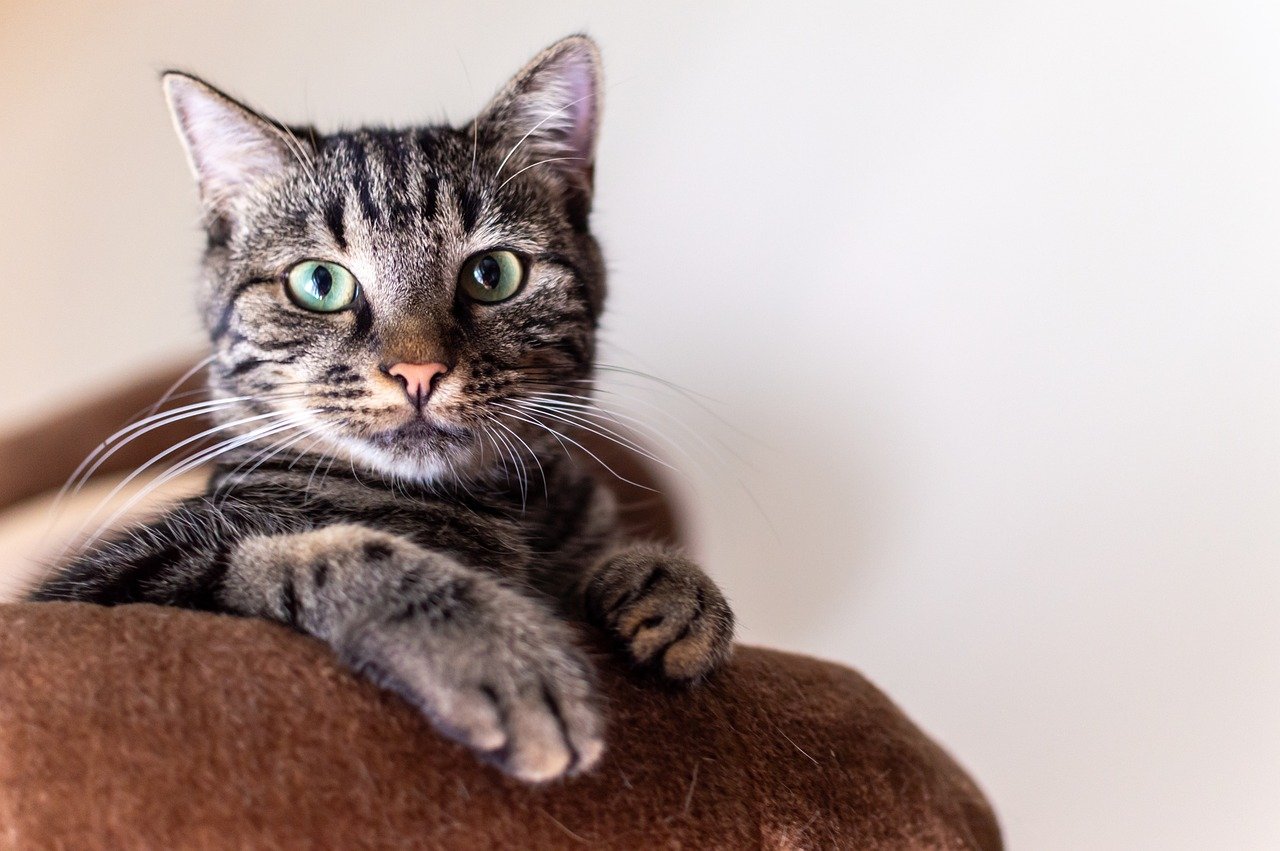
Care and Maintenance
Taking care of a Siberian cat is not just about feeding and grooming; it’s about understanding their unique needs and ensuring they thrive in your home. These majestic felines have specific requirements that, if met, can lead to a long and happy life. One of the most critical aspects of their care is grooming. Siberians have a thick, water-resistant coat that helps them adapt to cold climates, but this beautiful fur also requires regular attention. Without proper grooming, their fur can become matted and uncomfortable. Aim to brush your Siberian cat at least once a week, though more frequent grooming is beneficial during shedding seasons, typically in spring and fall.
When it comes to diet, Siberian cats need a balanced and nutritious diet to maintain their energy levels and overall health. It's essential to provide them with high-quality cat food that contains the right balance of proteins, fats, and carbohydrates. Look for options that list meat as the primary ingredient, as Siberians are natural hunters and thrive on a protein-rich diet. Additionally, always ensure they have access to fresh water, as hydration is crucial for their well-being. If you're unsure about the best diet for your Siberian, consulting with a veterinarian can provide tailored recommendations.
Health care is another vital component of maintaining your Siberian cat's well-being. Regular veterinary check-ups are essential to monitor their health, administer vaccinations, and catch any potential issues early on. Siberians are generally healthy cats, but they can be prone to certain hereditary conditions, such as hypertrophic cardiomyopathy (HCM). Being aware of these conditions and watching for any signs of illness—like changes in appetite or behavior—can help you address issues before they become serious.
Creating a stimulating environment is also crucial for these intelligent and playful cats. Siberians are known for their curiosity and love of play, so providing them with interactive toys, scratching posts, and climbing structures can keep them entertained and mentally engaged. Also, consider allocating time each day for interactive play sessions with your cat. This not only helps in building a strong bond but also keeps them physically active, which is essential for their health.
Finally, let’s not forget about the importance of socialization. Siberian cats are naturally sociable creatures that thrive in family environments. Introducing them to different people and pets can help them develop their social skills and reduce anxiety. If you’re bringing a new pet into the home, do so gradually and monitor their interactions to ensure a harmonious relationship.
- How often should I groom my Siberian cat? - Ideally, you should groom your Siberian cat at least once a week, with more frequent grooming during shedding seasons.
- What is the best diet for a Siberian cat? - A high-protein diet with meat as the primary ingredient is recommended for Siberian cats to meet their nutritional needs.
- Do Siberian cats require special veterinary care? - Regular veterinary check-ups are important, as Siberians can be prone to certain hereditary health issues.
- How can I keep my Siberian cat entertained? - Provide interactive toys, scratching posts, and dedicate time for play sessions to keep them mentally stimulated.
Grooming Needs
When it comes to grooming, Siberian cats have specific needs due to their stunningly thick fur. This luxurious coat is not just for show; it serves to keep them warm in their native cold climates. However, this beautiful fur requires regular attention to keep it in top condition. Think of grooming as a bonding time between you and your feline friend—it's not just about maintenance, but also about love and care.
Typically, brushing your Siberian cat should be done at least once a week. During shedding seasons, which usually occur in spring and fall, you might find that you need to step up your grooming game to a few times a week. This helps to remove loose hair and prevent those pesky mats from forming. A slicker brush or a wide-toothed comb works wonders in getting through their thick fur without causing discomfort. Just imagine how satisfying it is to see your furry companion looking sleek and shiny after a good grooming session!
Another important aspect of grooming is checking their ears, eyes, and teeth. Regularly inspect your cat’s ears for any signs of dirt or wax buildup, as this can lead to infections if left unchecked. Their expressive eyes should be clear and free of discharge. As for dental care, brushing your Siberian's teeth a few times a week can help prevent dental diseases, which are common in cats. If brushing seems daunting, consider dental treats or toys designed to promote oral health.
Moreover, bathing your Siberian cat is generally not necessary unless they get into something particularly messy. If a bath is needed, use a cat-friendly shampoo and ensure you dry them thoroughly afterward. Cats are known for their self-grooming habits, but a little assistance from their human can go a long way in keeping them comfortable and healthy.
In summary, grooming your Siberian cat is an essential part of their care routine. By dedicating time each week to brush their coat, check their ears and eyes, and maintain their dental hygiene, you are not only helping them look their best but also ensuring their overall well-being. Remember, a well-groomed cat is a happy cat!
- How often should I groom my Siberian cat? - It's best to groom them at least once a week, and more frequently during shedding seasons.
- Can I bathe my Siberian cat? - Bathing is usually not necessary, but if they get dirty, use a cat-friendly shampoo.
- What tools do I need for grooming? - A slicker brush or a wide-toothed comb is ideal for their thick fur.
- How can I keep my cat's teeth healthy? - Regular brushing or dental treats can help maintain their dental hygiene.
Dietary Requirements
When it comes to keeping your Siberian cat healthy and happy, understanding their dietary requirements is absolutely crucial. These majestic felines, known for their robust build and thick fur, have specific nutritional needs that must be met to ensure they thrive. Just like us, Siberians require a balanced diet rich in essential nutrients, which can help maintain their energy levels, support their immune system, and promote a shiny coat that reflects their overall health.
One of the key components of a Siberian's diet is high-quality protein. Since they are naturally hunters, their bodies are designed to process protein efficiently. Look for cat foods that list real meat as the first ingredient, such as chicken, turkey, or fish. This not only provides the necessary amino acids but also supports muscle development and overall vitality. In fact, a diet that consists of around 30-40% protein is ideal for these active cats.
In addition to protein, Siberians also benefit from a moderate amount of healthy fats. These fats are essential for maintaining energy levels and supporting healthy skin and fur. Omega-3 and Omega-6 fatty acids, found in fish oil and certain plant oils, can be particularly beneficial. These fats help keep their coat soft and shiny, which is especially important given their thick fur that can easily become matted if not cared for properly.
Carbohydrates are another important aspect of a Siberian's diet, but they should be included in moderation. While cats are obligate carnivores and do not require a high amount of carbs, some carbohydrates can provide necessary fiber for digestive health. Look for cat foods that include whole grains like brown rice or oats, as well as fruits and vegetables that can offer additional vitamins and minerals.
Hydration is another crucial factor to consider. Siberians, like all cats, need access to fresh water at all times. Some owners find that their cats are more inclined to drink water if they provide a pet water fountain, which can mimic the flow of fresh water and encourage hydration. Additionally, incorporating wet food into their diet can help increase their overall water intake.
To sum it up, the dietary requirements of Siberian cats can be broken down into a few key points:
- High-quality protein: Look for meat as the first ingredient.
- Moderate healthy fats: Include Omega-3 and Omega-6 fatty acids.
- Moderate carbohydrates: Whole grains, fruits, and vegetables are beneficial.
- Hydration: Ensure access to fresh water and consider wet food.
Ultimately, it's important to consult with your veterinarian to develop a personalized feeding plan that meets your Siberian cat's specific needs. Every cat is unique, and factors such as age, weight, activity level, and health conditions can influence their dietary requirements. By paying close attention to their nutrition, you can help ensure that your Siberian cat leads a long, healthy, and fulfilling life.
Q: How often should I feed my Siberian cat?
A: Most adult Siberian cats do well with two meals a day, while kittens may require three to four smaller meals to support their growth.
Q: Can I feed my Siberian cat homemade food?
A: Yes, but it's essential to ensure that the homemade diet is balanced and meets all their nutritional needs. Consulting with a vet is highly recommended.
Q: Are there any foods that are toxic to Siberian cats?
A: Yes, certain foods like onions, garlic, chocolate, and grapes can be toxic. Always double-check before introducing new foods to their diet.
Frequently Asked Questions
- What is the temperament of Siberian cats?
Siberian cats are known for their gentle and affectionate nature. They are often described as friendly and playful, making them great companions for families and individuals alike. Their sociable demeanor allows them to bond well with humans and other pets, creating a loving household atmosphere.
- How should I groom my Siberian cat?
Grooming your Siberian cat is essential due to their thick fur. Regular brushing, ideally at least once a week, helps prevent matting and keeps their coat healthy. Use a wide-toothed comb and a slicker brush to tackle tangles. Additionally, make sure to check their ears and trim their nails regularly for overall hygiene.
- What are the dietary needs of Siberian cats?
Siberian cats require a balanced diet rich in high-quality protein to support their energy levels and maintain their muscular build. Look for cat food that lists meat as the first ingredient, and consider incorporating wet food for hydration. Always consult your vet for specific dietary recommendations tailored to your cat's age and health.
- Are Siberian cats good with children and other pets?
Absolutely! Siberian cats are known for their friendly and tolerant nature, which makes them excellent companions for children. They are also generally good with other pets, as they have a natural tendency to socialize and interact well. Just ensure proper introductions and supervision during playtime.
- How adaptable are Siberian cats to different living environments?
Siberian cats are quite adaptable and can thrive in various living situations, whether in a bustling household or a quiet apartment. They can adjust to changes in their environment as long as they receive enough attention, stimulation, and love from their owners. Their flexible nature makes them suitable for many lifestyles.
- What kind of play activities do Siberian cats enjoy?
Siberian cats are known for their playful and curious personalities. They enjoy interactive play with toys that stimulate their hunting instincts, such as feather wands or laser pointers. Providing them with scratching posts and climbing structures can also keep them entertained and mentally engaged.
- How can I tell if my Siberian cat is happy?
A happy Siberian cat will exhibit signs such as playfulness, affectionate behavior, and a relaxed posture. They may purr, knead with their paws, and seek out your company. If your cat is eating well, grooming themselves, and engaging in play, these are all good indicators of their happiness.

